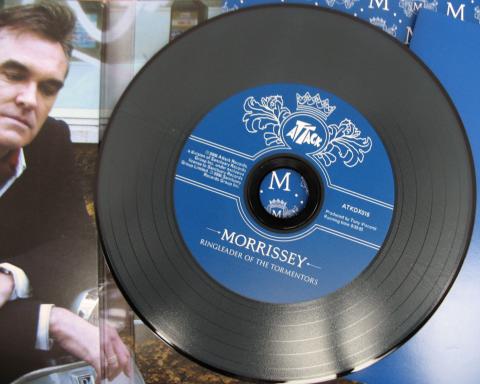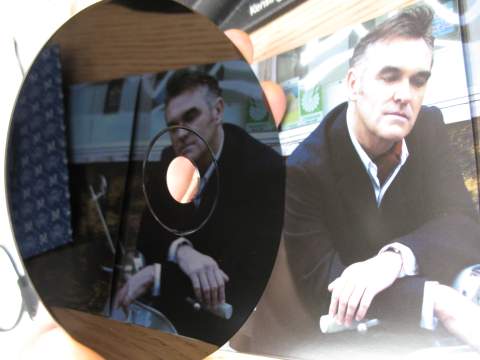The Null Device
2006/4/10
The Union Jack (or perhaps the Union Flag, depending on whom you ask) is 400 years old this week; the first early versions of the flag owe their existence to a royal proclamation from 12 April 1606, and initially represented merely the union of the monarchies of England and Scotland (which were otherwise separate states). The red diagonal bits (the "Saltire of Saint Patrick") didn't appear until the annexation of Ireland; oddly enough, there doesn't seem to be much evidence of the Irish ever having used them as a national symbol prior to this. As for the Welsh, they didn't get a look in, because they were considered a province of England at the time.
The Union Jack came into widespread use during the rise of the British Empire, which needed a flag to plant on all those bits of land, not to mention to wave at coronations, victory parades and such. Then came the decline of the Empire, Beatlemania, the Swinging Sixties, Mod (and several rehashings thereof), punk rock, neo-Nazi skinheads, Britpop, Cool Brittannia, New Labour, the Spice Girls and the Austin Powers movies, by when the flag had become a successful lifestyle brand, an example of what the pundits call "soft power". Somehow, in the interim, nobody actually remembered to pass a law enshrining it as a national flag, and hence its status is more a result of habit and precedent than anything more formal, which does seem like an appropriately British way to go about things.
Some other pieces of Union Jack/Flag trivia:
- To this day, it is illegal to fly the Union Jack from a private boat
- These people wanted to add the colour black to the flag to make it more inclusive of minorities or somesuch. They seem to have given up on the plan though.
I recently acquired a copy of the special edition of the new Morrissey album, Ringleader of the Tormentors.
I must say that I was impressed by the packaging design. Those who have seen the CD package will know that it is styled on classical records. However, only when you open it up do you notice that the disc itself is designed to look as much like a vinyl record as possible, black on the underside (like the old PlayStation CDs) and with vinyl-like ridges along the top (like the Verbatim Vinyl CD-Rs). Which was a rather nice touch. I suspect that only the limited-edition copies may have this:


The album itself is not bad either; it's a more optimistic album than a lot of Morrissey's previous work, including You Are The Quarry, with songs like At Last I Am Born ("once I was a mess of guilt because of the flesh, it's remarkable what you can learn once you are born"), not to mention Dear God Please Help Me, whose Moz-angsty title belies its hopeful, upbeat tone. It's as if, having left socially atomised Los Angeles (and, before that, grey Britain) behind for the dolce vita of sunny Rome, Morrissey has found somewhere he feels content, made peace with his past (as evidenced in On The Streets I Ran) and decisively buried his awkward celibate image (you have undoubtedly heard about the "explosive kegs" lyric, and possibly about his mystery romance in Rome).
Musically, it follows on from Quarry. Moz's lush quasi-falsetto is still there, couched in equally lush arrangements. Among collaborators on the album are producer Tony Visconti (who has worked with David Bowie, among others), guitarist/lyricist Jesse Tobias (that's Mr. Angie Hart to the JJJ listeners in the audience), and the legendary film composer Ennio Morricone, who does a string arrangement on Dear God. Oh, and there's also a children's choir, though it's kept unobstrusive and appropriate.